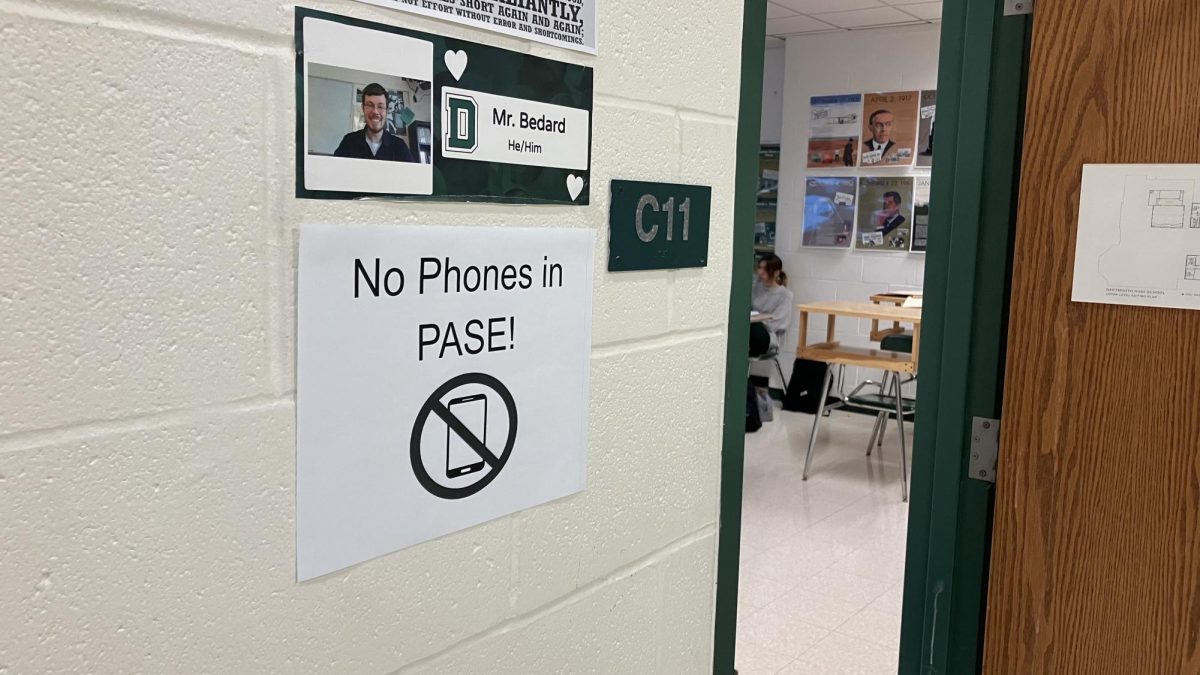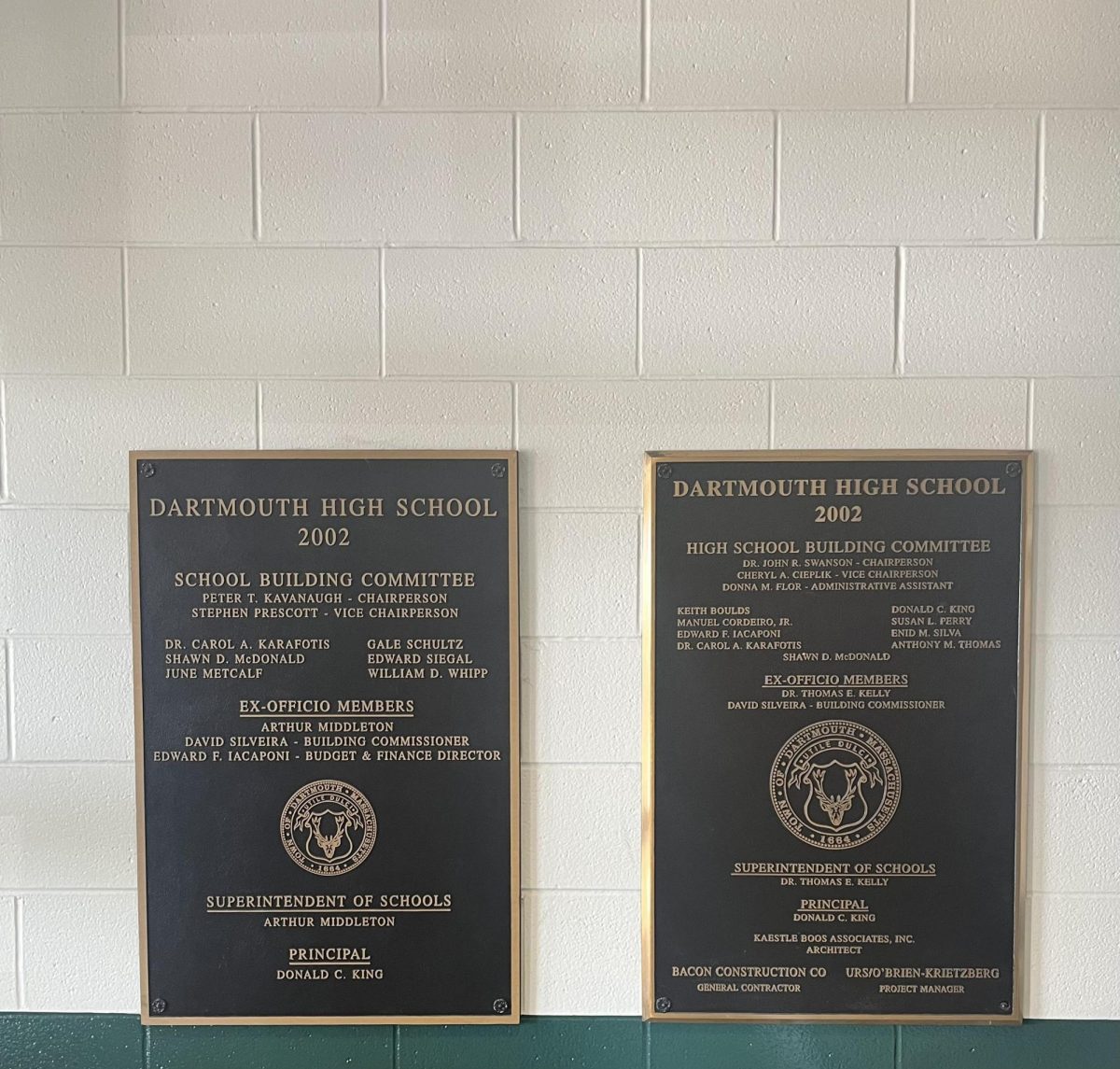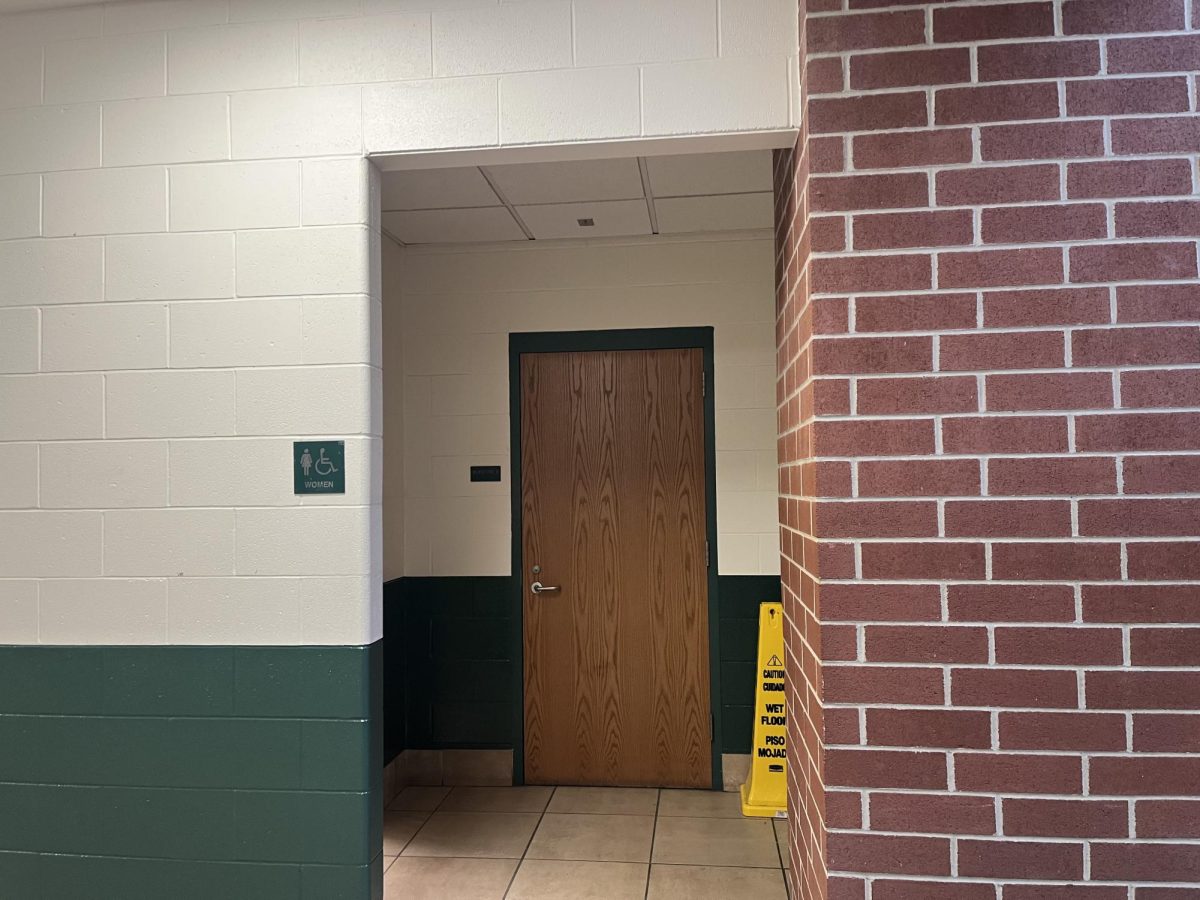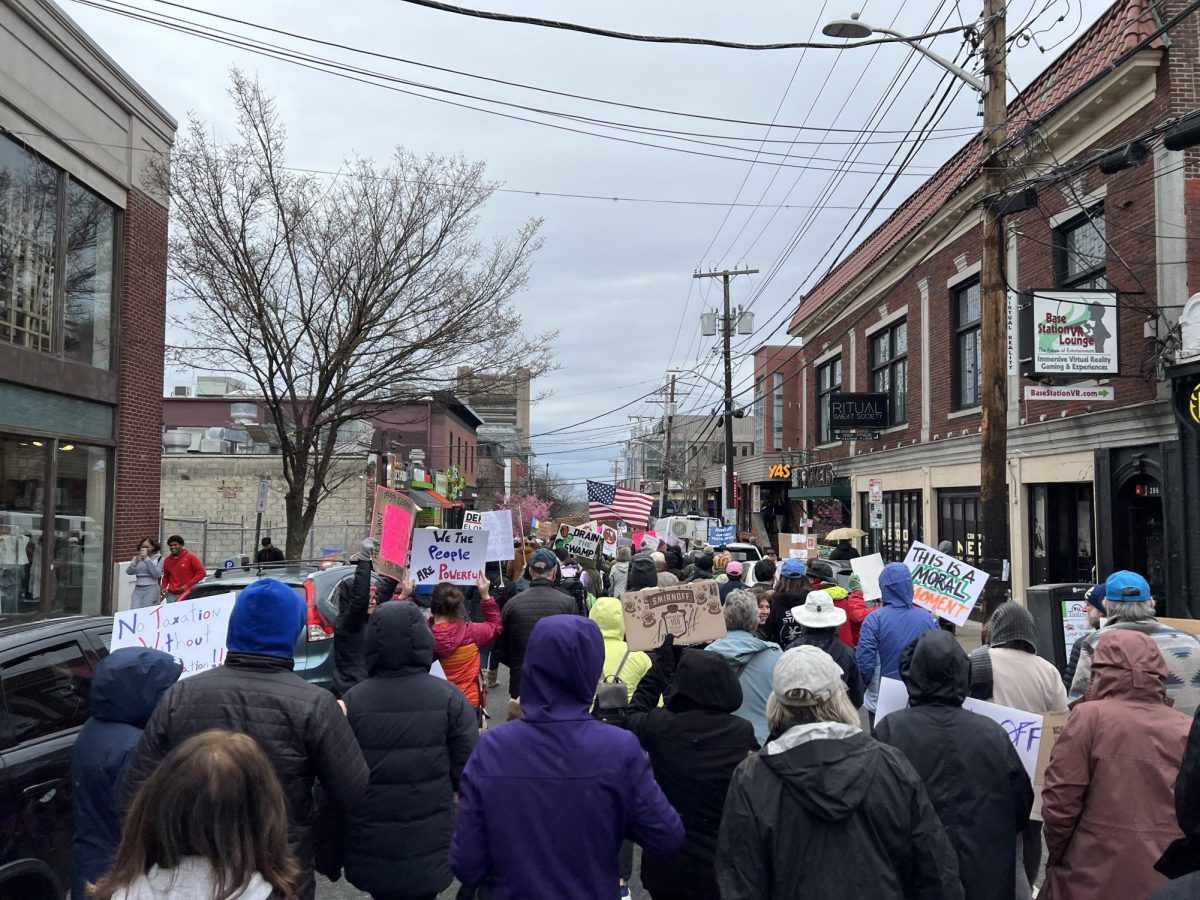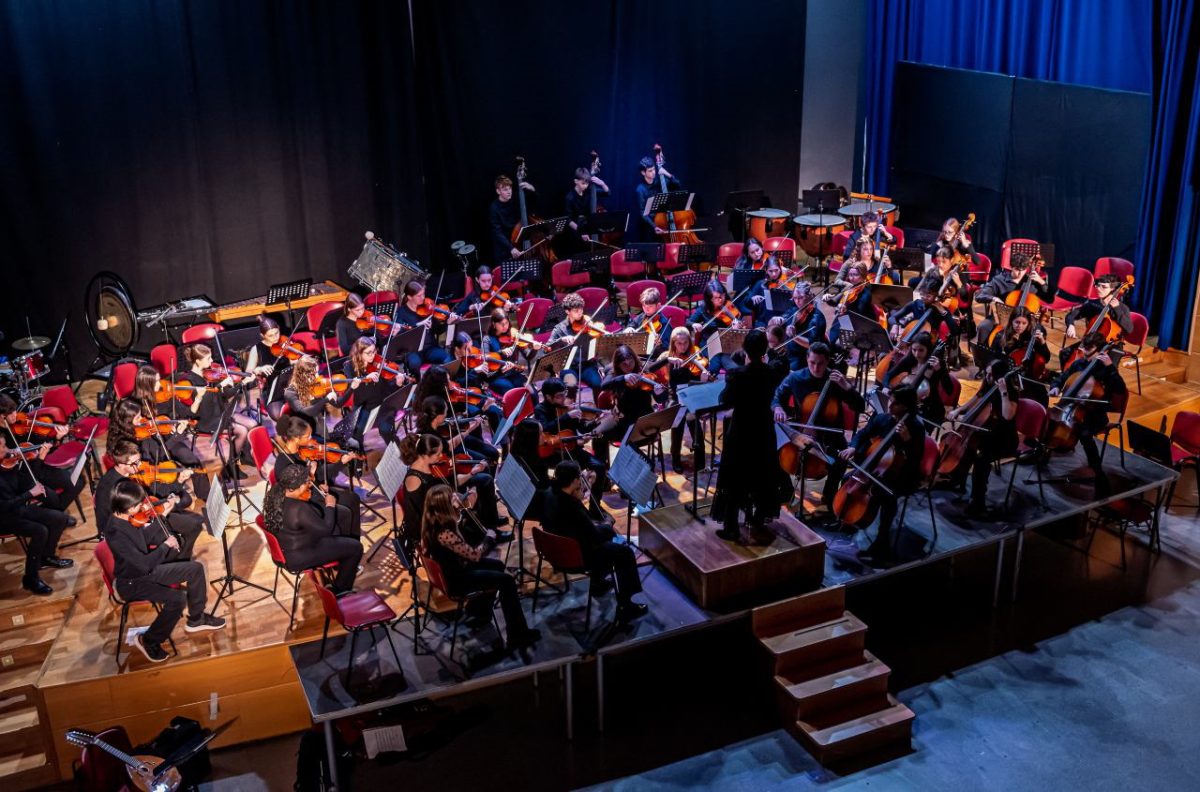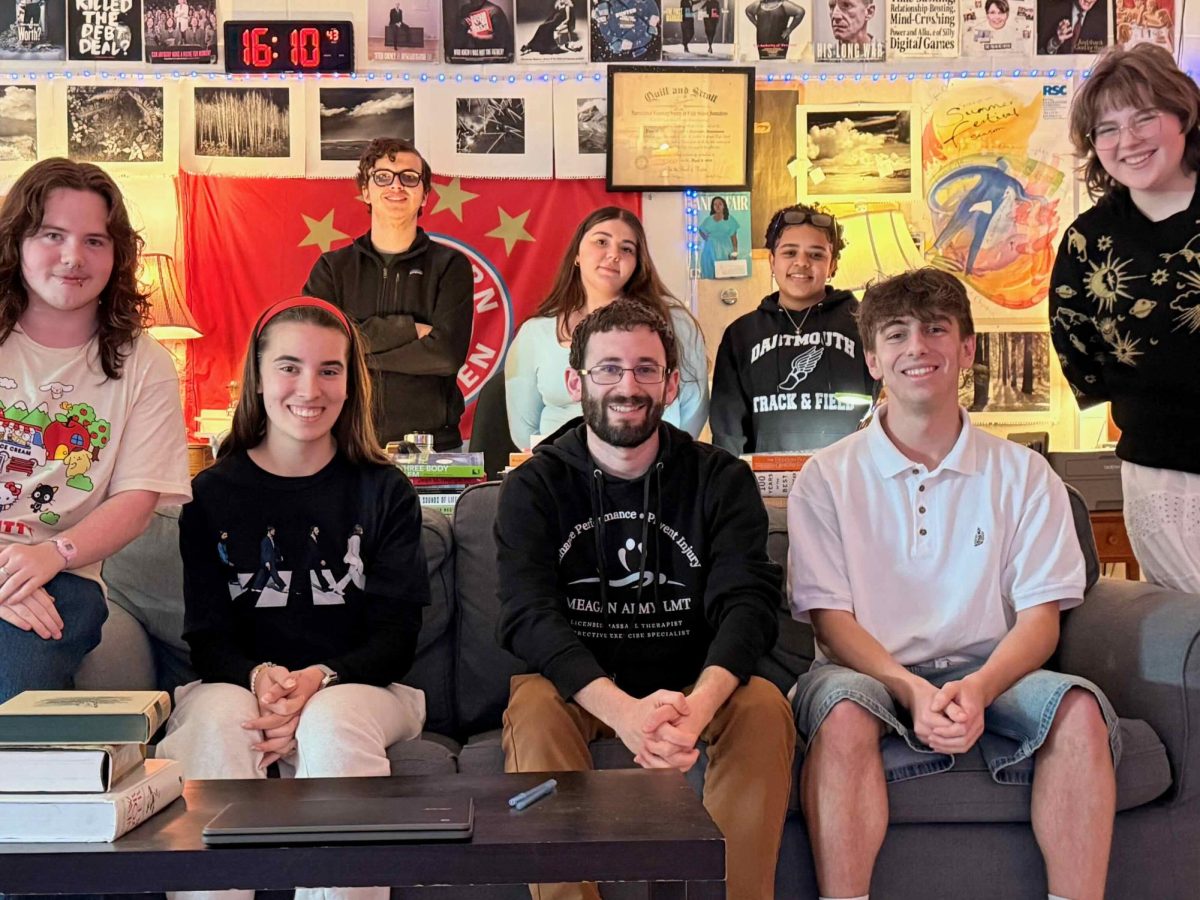Editors’ Note: After careful consideration, The Spectrum decided to eliminate use of courtesy titles. This is our first published article without them.
Most student and professional newspapers do not use courtesy titles. In addition, this decision works in the interest of inclusivity. We want to ensure the subjects of our articles aren’t limited to gendered titles that may not reflect their identity. Thank you for your understanding.
“Remember, PASE is a 40-minute gift. You should use it.”
As a student, I hear sentiments like this from teachers multiple times a day. PASE—the 40-minute, study hall-adjacent third period at DHS—has been, to put it shortly, highly debated. In an advisory slideshow from September 2, 2022, the acronym is defined as Personalize, Academic, Support, Enrichment. Its existence is not the issue (it is, in fact, a 40-minute gift), but rather what to do during the period is.
Even Principal Ryan Shea often contradicts himself on what PASE should be used for. In school assemblies about the cell phone policy, he’s said that phones can be used during PASE. But when the period gets too out of hand, he’s said that PASE should be a time for students to enrich their work and get extra help.
Despite the variety of opinions on what PASE should be used for, no drastic school-wide changes have been made to the period since February’s “PASE-gate.” Students, previously allowed to sign up with any teacher they wanted, were limited to only their current academic and elective teachers.
Recently, however, individual teachers have put their own restrictions on what students can do in their classrooms during PASE, specifically with phones.
This “No Phones During PASE” rule has appeared in various classrooms around the school. Some have announced it with posters, others simply with verbal instructions.
I am of the opinion that if this policy catches on, it could shape the future of DHS cell phone rules.
But it won’t necessarily thrive.
Three academic teachers have this rule: social studies teachers Jamie O’Neil and Douglas Bedard, as well as science teacher Melissa Pavlik. When asked why they instituted this rule in their classrooms, all three answered with some variation of “to help students focus.”
O’Neil teaches all freshmen. “They’re the only ones that can sign up for me,” she said, “and they needed more structure.”
Meanwhile, Bedard said, “I personally don’t feel like PASE should be used as a time to relax and hang out during the school day. A 40-minute period doesn’t all need to be used for rigorous academic work. However, in my opinion, students should be using that time to get extra help, to use it for enrichment in areas and topics that they find interesting.”
This opinion makes complete sense from academic teachers. It fits with many students and staff’s idea of what PASE should be: a study hall period with a little bit more flexibility for unwinding.
That only makes me slightly less shocked that these teachers really didn’t receive much pushback on these rules from students. Pavlik just told them to go somewhere else if they wanted to have their phones out. Now everyone in her PASE knows the rule, and both social studies teachers seemed to have followed the same tactic. All three reported having some trouble toward the beginning, but no large issues with the policy now other than the occasional minor reminder. Maybe students like this policy to an extent or at least see its benefit.
From a teaching standpoint, I think that self-control is important, and knowing when you have to lock in and do some work is an important skill to teach. (After all, college professors aren’t going to make you put your phone in a cell hotel during class, and neither will your boss during work). It is just as important to recognize when you need a break and take that in a healthy and mindful way.
PASE, as it currently is, is an excellent controlled environment to practice these skills. Taking away the option to play Block Blast when you should be studying for your English test next period is not teaching anything. Maybe the student will study, maybe they won’t, but making mistakes is the first step in learning from them.
I also don’t think this policy would flourish school-wide because of the students who do need breaks. A PASE period spent talking with friends is a welcome oasis for a student with back-to-back AP classes, or even a student overwhelmed at home.
Some students enjoy the quiet and structure of these “No Phones During PASE” rules, such as an anonymous senior. They said, “When I need to focus on schoolwork, I usually go to Mr. Bedard’s PASE because of his no phone policy. Having my phone is nice, but when I don’t have it, I’m not as distracted and can lock in.”
But some students, such as junior Ashton Sbardella, don’t benefit from it. In his words, “It’s stupid and unfair. Honestly, it’s probably part of the reason I don’t go to [Bedard’s] PASE very much. PASE time is a relax time for some kids. I need PASE to be a time where I can take a break from school after my hard AP classes in the morning, as there’s never a day where I don’t have back-to-back APs first and second period. Sometimes I need my phone to get away from school for a bit and PASE is that time for me.”
This dichotomy is a perfect argument for why it should stay in some classrooms (maybe even more than it is currently in), but not all.
Bedard believes that teachers have the autonomy to decide for themselves, and in the words of O’Neil, “I think the kids can handle doing their own thing, and they know what to expect where they’re going to sign up. So, I think it’s okay to have PASE be touch and go.”

